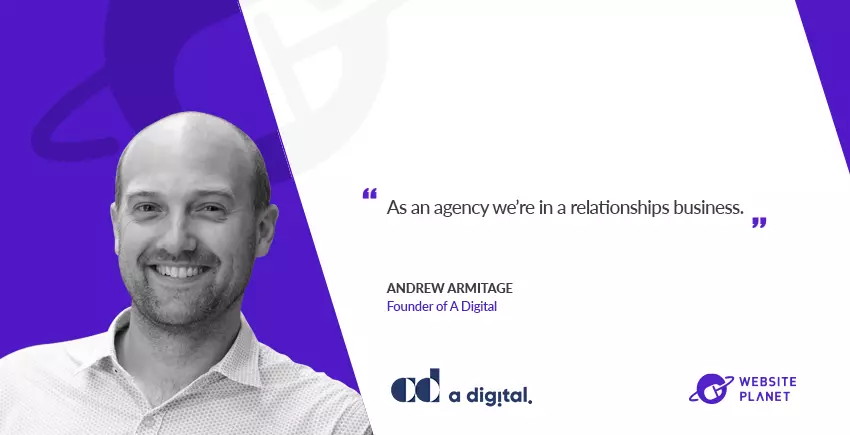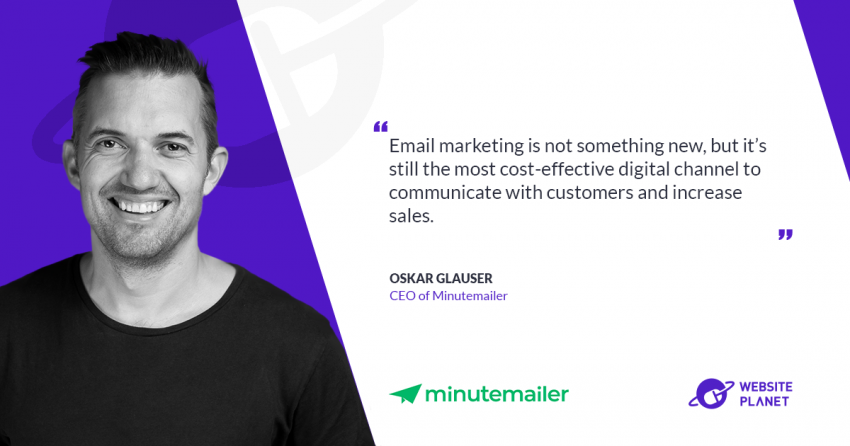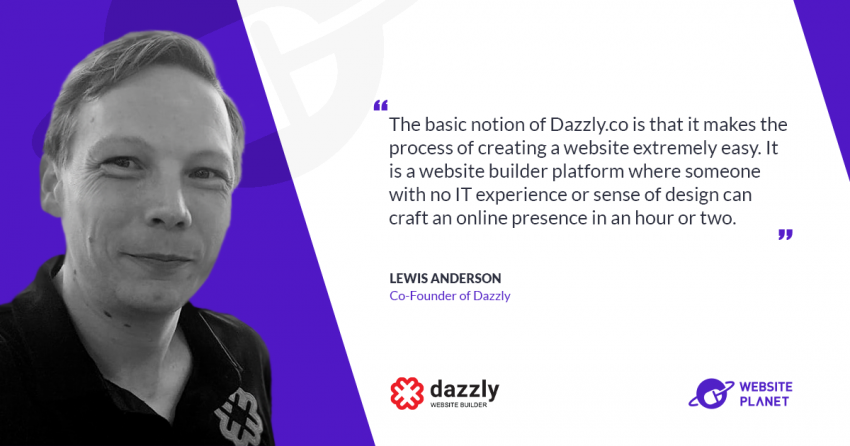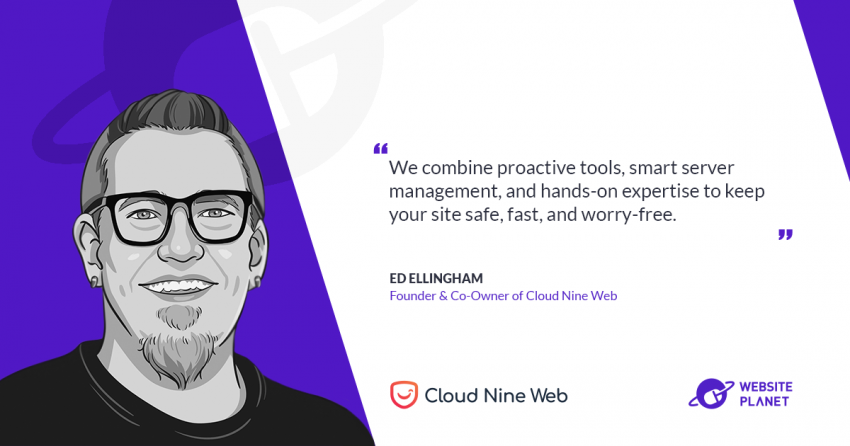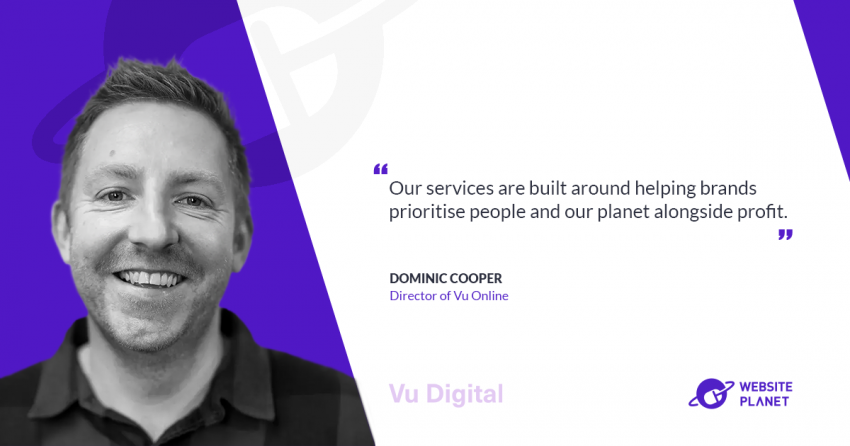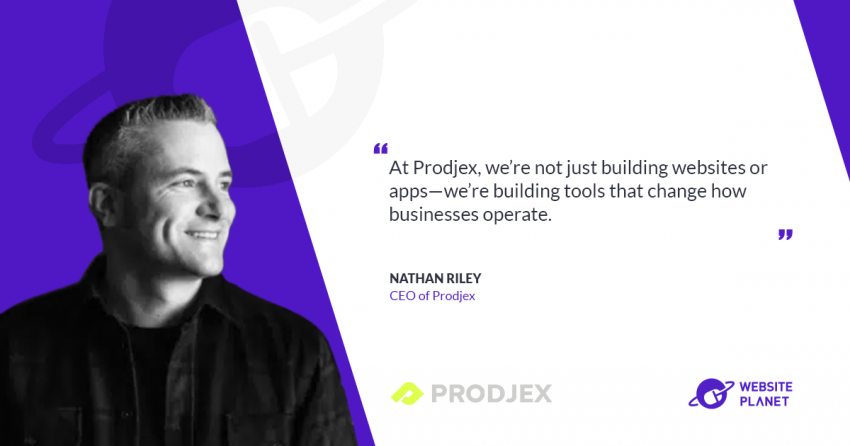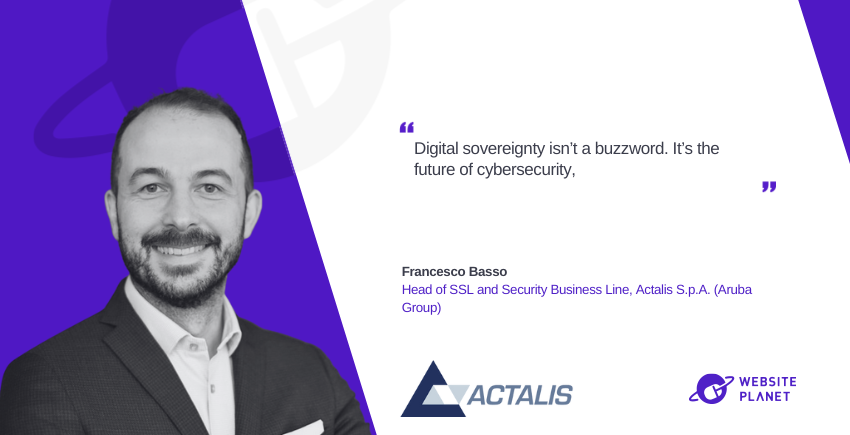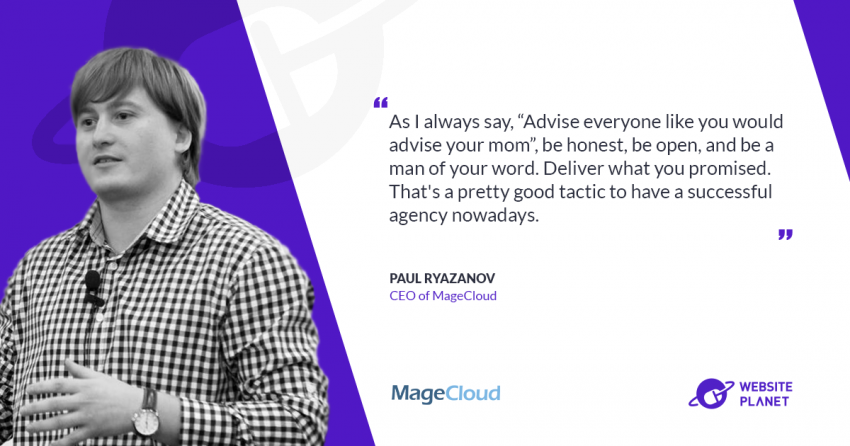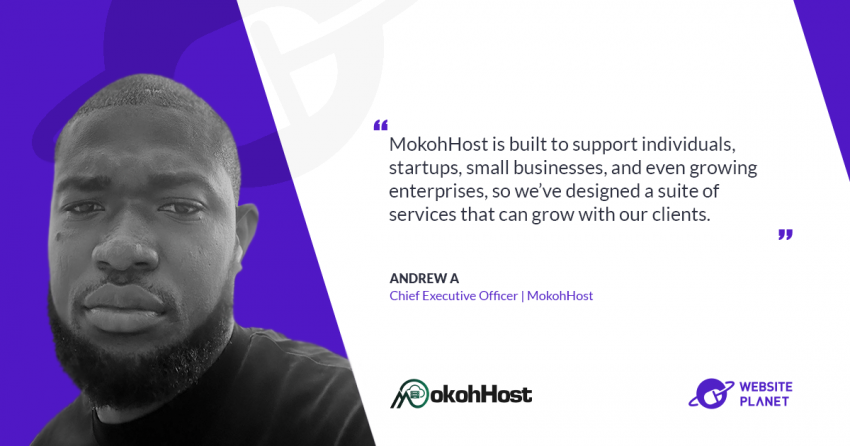Website Planet had the opportunity to speak with Andrew Armitage, founder of A Digital, an award winning digital agency with over a decade experience in building custom websites and operating online marketing campaigns.
A must read for anyone looking to learn how a successful digital agency solves the common pain points faced by their clients, what skills and tools are essential to their success, and how they plan to make their growth sustainable.
Let’s introduce A Digital to our audience. What services do you offer?
A Digital is very much focused on digital platforms and products so we build bespoke websites and eCommerce applications for mid-sized clients, typically with a turnover between £5 and £100 million.
We also provide digital marketing solutions for companies who we may or may not have built a website for which generally includes SEO, email marketing and PPC. I’ve never described ourselves as full service because that genuinely means you need to be able to provide so many different things.
We’ve also chosen to specialise in a platform called Craft CMS, which is a fantastic platform offering security, flexibility and ease of use. In fact, the new W3C website has recently been launched on Craft CMS. For more custom solutions we might use Laravel.
How does your mission differ from other companies in your niche?
There is so much happening in the digital space right now I think it’s a really interesting time – especially as we see AI start to take hold. Access to platforms and software has never been easier, but getting all to work together in harmony can be overwhelming for clients and actually get quite technical. So I think it’s important that we’re able to advise clients on how they can prioritize their spend and resources, and then enable them to get the most from the platforms and services they commit to.
Our strength is being able to look at things from a commercial perspective and demonstrate the value a particular service or solution will add to a clients business. I also think it’s one thing to work with say an email marketing platform, but it’s entirely something else to use all the technical features it provides and create a really positive user experience, so being able to combine strategy, design, brand experience and technical implementation provides a single point of contact for clients with joined up thinking throughout.
What inspired you to start your own agency, and how did you overcome the challenges you faced in the early days?
I started my agency in 2007, so the Internet was still in its infancy and there was so much to learn. I understood the technical side of it and could see how it could be applied commercially, which at the time, many business owners didn’t. Knowing you could help them to exploit commercial opportunities was hugely satisfying and of course, provided us with a win-win situation.
Funnily enough, I actually think the earlier days of starting an agency can be easier than sustaining it. We’ve had Covid and the pandemic since, and having grown the agency there was more at stake. More people to feed and my own family to support.
In the early days you’ve a passion, and less skin in the game, and are untainted by habits that can grow over time. You’re also open to a wider scope of work which as you grow, you have to be more sensitive to and ensure you’re working on the right kind of projects.
What industries do you typically work with, and what are the common pain points your clients have when they come to you?
We work across a number of sectors, but typically professional services, tourism, hospitality and leisure, manufacturing and food and drink. We’ve worked in other sectors but I’ve never been hugely tempted to go all in on a single sector. We saw the risks of that during the pandemic, but I also think that working across sectors allows you to see wider practices and apply these in your work. Clearly there are benefits from niching, though, so it’s something we always keep in mind in our marketing.
Clients will generally come to us when they need a solution that might be large scale, or requires several different elements bolting together. For example, a recently built book publishing workflow application we built links to an ecommerce website. That website links to a distribution system and so you can see there’s a chain of platforms that need to talk to each other in a seamless way.
And what makes them eventually choose you over your competitors?
We’ve a deep technical understanding of how things work and I believe in a very high standard of what ‘good’ looks like. We always speak in non-technical language, able to explain things clearly and demonstrate the benefits that can be achieved from a particular solution.
As an agency we’re in a relationships business. Clients are making a long term business investment, so they need to feel there’s a good relationship ‘fit’ with us and we share similar values. This is important for us too when we consider new projects as a strong relationship without question leads to a stronger outcome for us all.
What tools are most helpful in managing your business, and how do you benefit from them?
We have a lengthy list of apps in the business to keep projects on track. Most of these will be familiar to people and include things like Teamwork for our project management, Xero for accounting, Adobe CreativeCloud and Google Workspace.
Apps like Pipedrive CRM help us manage new business opportunities and then we have specific tools like Figma for design and Bugherd for capturing client feedback on websites in production.
We have to be careful we don’t fall into the trap of
‘its just another $50 subscription’. It’s so easy to sign up to new apps but then not get the benefit from them. Miro for example is one we can use a lot in the early days of a project, but then people on the team may not use it for several weeks. Whenever possible we’ll link apps with Zapier to provide automations, saving time and admin, or to simply ensure things are held in a single place.
Where do you go to hire new people, and what are the most important skills you look for?
We generally recruit from platforms like Indeed or LinkedIn and of course, contacts in my own personal network.
It’s been a real challenge since Covid-19 – like many businesses we’ve experienced ‘the great resignation’ and recruiting has been hard. We saw salaries rise as it looked like the impact from Covid wasn’t going to be all that bad. But in the UK, from my point of view, we’ve seen the impact kick in after the lockdowns were lifted with higher inflation, rising interest rates and generally a much tougher economic environment. That’s not likely to change any time soon, and with people’s attitude to work and culture going through something of a revolution, we’re no longer recruiting in a local market, but a national one where people look for different aspects of work such as full time remote working or a 4-day week.
While education is important to any professional role, it’s by no means the single most important consideration for me – although of course some technical skills can be a prerequisite.
Attitude and aptitude are a key indicator, as experiences can be built, skills can be taught, but only when someone is prepared to learn and apply themselves to that in an open and flexible approach.
Attention to detail is also important, as is listening, and not being afraid to challenge other people’s thinking or share their own. It’s critical to grow an inclusive team environment where everyone feels confident to put forward ideas and suggestions, but equally accept mistakes and know when to call on the experience of others in the team.
What challenges and opportunities do you see in the future of your industry, and how do you plan to cope?
The obvious challenge at the moment is AI and the direction this will take. It’s obviously going to make a huge impact on people’s jobs and the work they do, and while it’s exciting to see, it does give cause for concern.
Do we really want to become prompt engineers and have an AI do our thinking for us? In some cases, like medical diagnoses, for sure, but I’m not sure we do in creative works, and especially where things can get more technical. What happens when something breaks? Is the AI able to fix it?
So while I don’t think AI will be taking over brand strategy or bespoke website builds just yet, the threat to our development comes from low/no code solutions such as Webflow. We’ve built a team of developers and their skill sets will need to change, as will our approach as an agency. Clients are choosing platforms like Shopify for their ease of use and quick setup, but they still bring a learning curve and their own restrictions. Technical development projects carry risk, so anything that derisks that process is appealing to businesses, especially at times of economic uncertainty.
